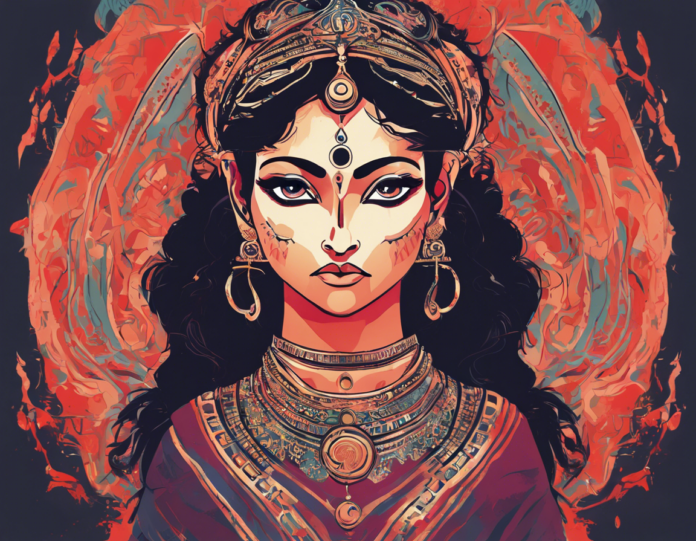Introduction:
In Hindu philosophy, there is a well-known adage, “Dharmo Rakshati Rakshitah,” which translates to “Dharma protects those who protect it.” Dharma is a central concept in Hinduism, Buddhism, Jainism, and other Indian religions, referring to the moral order that upholds the universe and governs individual conduct. The concept of dharma encompasses righteousness, duty, ethics, and law. Upholding dharma is considered essential not only for individual well-being but also for the harmonious functioning of society and the cosmos at large.
The Significance of Dharma:
1. Definition of Dharma:
Dharma is a multifaceted concept that encompasses various meanings and interpretations. At its core, dharma signifies righteousness, moral duty, and ethical conduct. It is the innate order that sustains the universe, ensuring balance and harmony in the cosmic cycle of creation, preservation, and dissolution.
2. Individual Dharma:
In Hindu philosophy, every individual is believed to have a specific dharma based on their caste (varna), stage of life (ashrama), and personal attributes. Fulfilling one’s dharma is essential for leading a virtuous and meaningful life. It involves undertaking one’s prescribed duties with sincerity, integrity, and devotion, regardless of the outcome.
3. Social Dharma:
Beyond individual obligations, dharma also extends to societal norms and duties. In the ancient Indian caste system, each varna (Brahmin, Kshatriya, Vaishya, Shudra) had its own set of responsibilities and obligations. Upholding social dharma required respecting hierarchy, promoting social cohesion, and performing one’s role in the community efficiently.
4. Cosmic Dharma:
Dharma is not limited to human affairs but extends to the entire cosmos. It is believed that the world functions smoothly when every being adheres to its dharma. Just as the sun rises and sets in accordance with cosmic order, living beings too must align their actions with the larger moral framework to maintain balance in the universe.
The Role of Dharma in Daily Life:
1. Ethical Decision-Making:
Dharma serves as a guiding principle for ethical decision-making. When faced with moral dilemmas or conflicting choices, individuals are encouraged to choose the path that aligns with righteousness and upholds universal values. By following dharma, one can navigate life’s complexities with integrity and clarity.
2. Personal Growth and Self-Realization:
Upholding dharma is not just about adhering to external rules but also about inner transformation. By cultivating virtues such as truthfulness, compassion, humility, and gratitude, individuals can progress spiritually and realize their true nature. Dharma acts as a roadmap for personal growth and self-realization.
3. Maintaining Social Order:
In a societal context, dharma plays a crucial role in maintaining social order and harmony. When individuals discharge their duties responsibly and conscientiously, the fabric of society remains strong and resilient. Respect for dharma fosters mutual respect, cooperation, and compassion among community members.
4. Karma and Dharma:
Dharma and karma are intricately linked concepts in Hindu philosophy. While dharma governs the ethical aspect of actions, karma deals with the consequences of those actions. By performing one’s dharma diligently and selflessly, individuals can accumulate positive karma and progress on the path of spiritual evolution.
Challenges to Upholding Dharma:
1. Moral Dilemmas:
In a rapidly changing world fraught with ethical dilemmas, individuals often face challenges in discerning the right course of action. Conflicting societal norms, personal desires, and external pressures can cloud one’s understanding of dharma, making it difficult to make morally sound choices.
2. Modernization and Globalization:
The dynamics of modern society, characterized by rapid technological advancements and cultural exchange, pose challenges to traditional notions of dharma. The clash between age-old values and progressive ideologies can create tensions in upholding dharma in a contemporary context.
3. Individualism and Materialism:
The rise of individualism and materialism in today’s world has shifted focus from collective welfare to personal gratification. In a consumer-driven culture, upholding dharma may seem impractical or restrictive, leading individuals to prioritize self-interest over ethical considerations.
4. Moral Relativism:
The prevalence of moral relativism, which posits that ethical standards are subjective and context-dependent, can undermine the universal principles of dharma. In a morally pluralistic society, individuals may struggle to discern objective truths and uphold timeless values.
FAQs (Frequently Asked Questions):
1. What is the relationship between dharma and karma?
Dharma refers to righteous conduct and ethical duty, while karma deals with the consequences of one’s actions. Upholding dharma influences the kind of karma one accumulates, shaping one’s present circumstances and future experiences.
2. How can one discover their individual dharma?
Discovering one’s individual dharma involves self-reflection, introspection, and seeking guidance from spiritual teachers or scriptures. By aligning one’s skills, interests, and values with the greater good, individuals can discern their unique path of duty.
3. Is dharma a static or dynamic concept?
While the core principles of dharma remain constant, their application may vary according to time, place, and circumstance. Dharma is both a timeless moral code and a flexible framework that adapts to changing contexts.
4. What happens when there is a conflict between personal dharma and societal norms?
When personal dharma conflicts with societal norms, individuals must navigate the situation with discernment and wisdom. Balancing individual integrity with social harmony requires careful consideration of ethical principles and the greater good.
5. Can dharma evolve over time?
Dharma is considered eternal and universal, transcending temporal boundaries. However, the interpretation and application of dharma can evolve to address contemporary challenges and uphold timeless values in a changing world.
Conclusion:
In conclusion, the adage “Dharmo Rakshati Rakshitah” underscores the profound significance of upholding dharma in one’s personal life, social interactions, and cosmic alignment. By embracing righteousness, moral integrity, and ethical conduct, individuals can fulfill their sacred duty and contribute to the well-being of the world. In a complex and interconnected universe, the timeless wisdom of dharma serves as a guiding light, illuminating the path to spiritual growth, social harmony, and universal balance.












